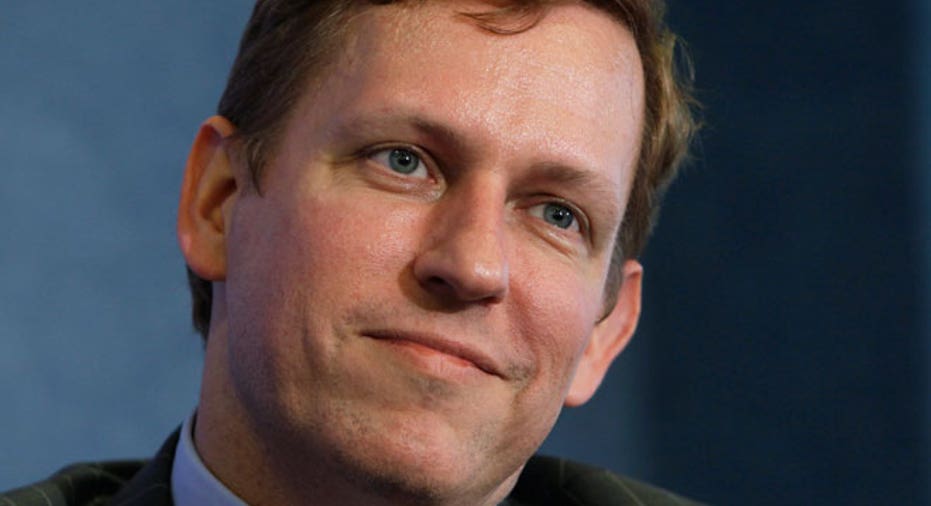Why Peter Thiel Is Right About Gawker

With the possible exception of The Good Wife, you probably find legal matters to be as tedious as I do. As far as I’m concerned, it’s a great system as long as I don’t have to read about it, sit through a deposition or see the inside of a courtroom. Ever.
Lucky for both of us, we don’t have to do any of that today. But, the revelation that Silicon Valley billionaire Peter Thiel bankrolled Hulk Hogan’s successful lawsuit against Gawker Media over a sex tape has fascinating and highly controversial implications.
ICYMI, in 2012, the gossip site posted a secret video of the famed wrestler having a little too much fun with the then-wife of his now ex-friend, radio personality Bubba the Love Sponge. Hogan sued Gawker Media and, in March of this year, was awarded $140 million in damages.
New York-based Gawker, which also owns Gizmodo, Lifehackerand a host of other sites, is appealing the verdict.
As for Thiel, he’s a pretty big deal in the Valley. He has a J.D. from Stanford Law School; was a cofounder of PayPal (aka the Don of the PayPal Mafia); was an angel investor in Facebook, LinkedIn, Yammer, Yelp and Palantir, which he cofounded; manages well over $2 billion of venture capital and wrote the #1 bestseller Zero to One.
The Wall Street Journal reports that one of Thiel’s investments, cancer drug maker Stemcentrx, has agreed to be acquired by AbbVie for $10 billion. The $300 million investment by Thiel’s Founders Fund stands to net $1.4 billion on the deal. The VC firm has also invested in unicorns Airbnb, Lyft and Spotify, and Elon Musk’s SpaceX.
Also according to the Journal, Thiel’s beef with Gawker dates back to at least 2007, when its former Valleywag site began its critical reporting on his right-leaning politics, investments and sexuality.
Now for the controversial implications. The concern is that rich people with enormous war chests can act as third-party financiers and fund lawsuits against those they have some sort of personal problem or philosophical disagreement with. Such litigation can have a chilling effect on free speech, especially if the target is associated with the media.
In this particular case, the hypothesis is that Thiel wasn’t happy with Gawker, and, since he did not have a strong case against them, did not want to publicly fuel the fire, or both, he quietly bankrolled someone else’s litigation as payback: to get back at them, teach them a lesson, put them out of business, etc. But, he has since told the Journal he thought his support would eventually become known.
Before you formulate an opinion or hear mine, consider these excerpts from a rare but revealing 2009 interview Thiel did on the subject of Valleywag: “I don’t feel that I’m being unequally targeted. But it’s disturbing to me that there are people who are so angry out there,” he said. “I actually think it’s sort of the psychology of a terrorist, where it’s purely destructive and that Valleywag is the Silicon Valley equivalent of Al Qaeda.”
“It’s terrible for the Valley, which is supposed to be about people who are willing to think out loud and be different. I think they should be described as terrorists, not as writers or reporters,” said Thiel. “It becomes this unhealthy dynamic where it just becomes about shocking people. On the other hand, it’s an interesting theoretical question, whether, if Valleywag went away, something else would fill in to replace it.”
To me, that would seem to support the general concern, but not the specific hypothesis being attributed to Thiel.
Yes, he is a rich guy throwing his weight around, but he appears to be doing it to support what he sees as a cause, not for some sort of vengeance. And to the best of my knowledge, what he’s doing is entirely legal. While some may characterize this as frivolous litigation, at least in this case, a Florida court strongly disagreed – to the tune of $140 million.
The notion that money buys good lawyers is as old as the legal system itself. Like it or not, that’s how the system works, no matter which side of an issue you’re on.
Besides, it seems more than a little duplicitous for some journalists in particular to characterize this as bad behavior that threatens First Amendment rights. Those same people routinely slap racist, misogynist, or homophobic labels on others to bully them into confining their speech to a politically correct box. And the threat of litigation by special interest groups always looms large in those situations.
If that isn’t the pot calling the kettle black, I don’t know what is.
*Editor’s note: This article was updated to include The Wall Street Journal reporting that “Thiel acknowledged Wednesday that he helped finance Hulk Hogan’s legal fight against Gawker Media.”



















